Ditapis dengan
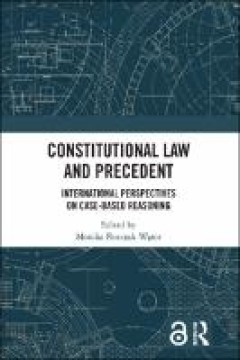
Constitutional Law and Precedent: International Perspectives on Case-Based Re…
This book examines case-based reasoning in constitutional adjudication; that is, how courts decide on constitutional cases by referring to their own prior case law and the case law of other national, foreign, and international courts. Argumentation based on judicial authority is now fundamental to the resolution of constitutional disputes. At the same time, it is the most common form of reasoni…
- Edisi
- -
- ISBN/ISSN
- 978-1-003-26426-2
- Deskripsi Fisik
- 293 hlm.
- Judul Seri
- -
- No. Panggil
- -
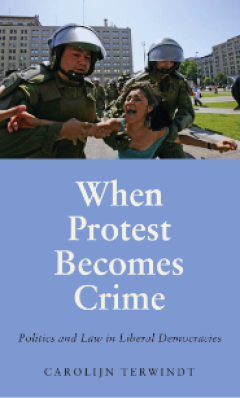
When Protest Becomes Crime: Politics and Law in Liberal Democracies
How does protest become criminalised? Applying an anthropological perspective to political and legal conflicts, Carolijn Terwindt urges us to critically question the underlying interests and logic of prosecuting protesters. The book draws upon ethnographic research in Chile, Spain, and the United States to trace prosecutorial narratives in three protracted contentious episodes in liberal democr…
- Edisi
- -
- ISBN/ISSN
- 978-1-7868-0607-9
- Deskripsi Fisik
- 305 hlm.
- Judul Seri
- -
- No. Panggil
- -
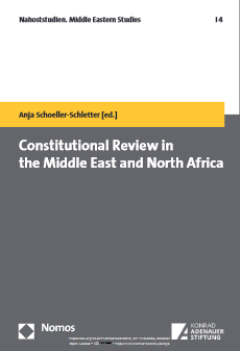
Constitutional Review in the Middle East and North Africa
Ten years after the Arab Spring, many parts of the Middle East and North Africa are struggling with the consequences of armed conflict, a balance of power tilted in favour of the executive and challenges to the rule of law. However, institutions charged with conducting constitutional review have been reformed substantially in most of the countries in those regions. A pioneer effort, this book o…
- Edisi
- -
- ISBN/ISSN
- 978-3-7489-1201-9
- Deskripsi Fisik
- 405 hlm.
- Judul Seri
- -
- No. Panggil
- -
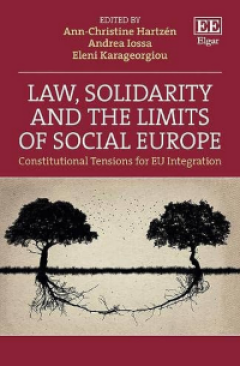
Law, Solidarity and the Limits of Social Europe: Constitutional Tensions for …
This thought-provoking book examines the socio-legal mechanisms that drive EU constitutional tensions, as well as the role of principles and values in re-directing EU law and policy towards a democratic Social Europe. It addresses the current limits of Social Europe in relation to different areas of EU law, offering a critical assessment of the present status of EU integration. Covering areas …
- Edisi
- -
- ISBN/ISSN
- 978-1-80088-551-6
- Deskripsi Fisik
- 236 hlm.
- Judul Seri
- -
- No. Panggil
- -
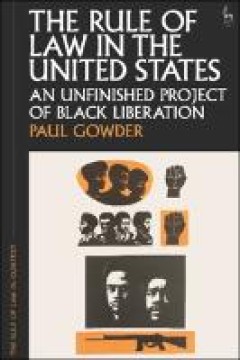
The Rule of Law in the United States: An Unfinished Project of Black Liberation
What is the American rule of law? Is it a paradigm case of the strong constitutionalism concept of the rule of law or has it fallen short of its rule of law ambitions? This open access book traces the promise and paradox of the American rule of law in three interwoven ways. It focuses on explicating the ideals of the American rule of law by asking: how do we interpret its history and the goals …
- Edisi
- -
- ISBN/ISSN
- 978-1-50994-001-1
- Deskripsi Fisik
- 215 hlm.
- Judul Seri
- -
- No. Panggil
- -
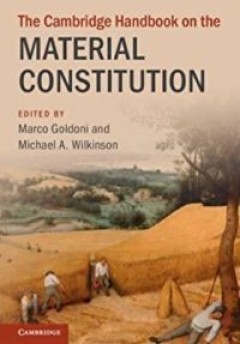
The Cambridge Handbook on the Material Constitution
Despite a long and venerable tradition, the material constitution almost disappeared from constitutional scholarship after the Second World War. Its marginalisation saw the rise of a normative and legalistic style in constitutional law that neglected the role of social reality and political economy. This collection not only retrieves the history and development of the concept of the material co…
- Edisi
- -
- ISBN/ISSN
- 978-1-009-02376-4
- Deskripsi Fisik
- 395 hlm.
- Judul Seri
- -
- No. Panggil
- -
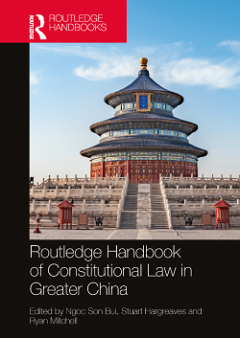
Routledge Handbook of Constitutional Law in Greater China
The Handbook of Constitutional Law in Greater China surveys important issues of constitutional law in Mainland China, Hong Kong, Macau, and Taiwan. It synthesizes existing scholarship, debates, and views on important constitutional issues in the four jurisdictions. Written by a range of scholars, it contributes to both national and comparative scholarship on constitutional law in these jurisdic…
- Edisi
- -
- ISBN/ISSN
- 978-1-003-12824-3
- Deskripsi Fisik
- 392 hlm.
- Judul Seri
- -
- No. Panggil
- -
 Karya Umum
Karya Umum  Filsafat
Filsafat  Agama
Agama  Ilmu-ilmu Sosial
Ilmu-ilmu Sosial  Bahasa
Bahasa  Ilmu-ilmu Murni
Ilmu-ilmu Murni  Ilmu-ilmu Terapan
Ilmu-ilmu Terapan  Kesenian, Hiburan, dan Olahraga
Kesenian, Hiburan, dan Olahraga  Kesusastraan
Kesusastraan  Geografi dan Sejarah
Geografi dan Sejarah